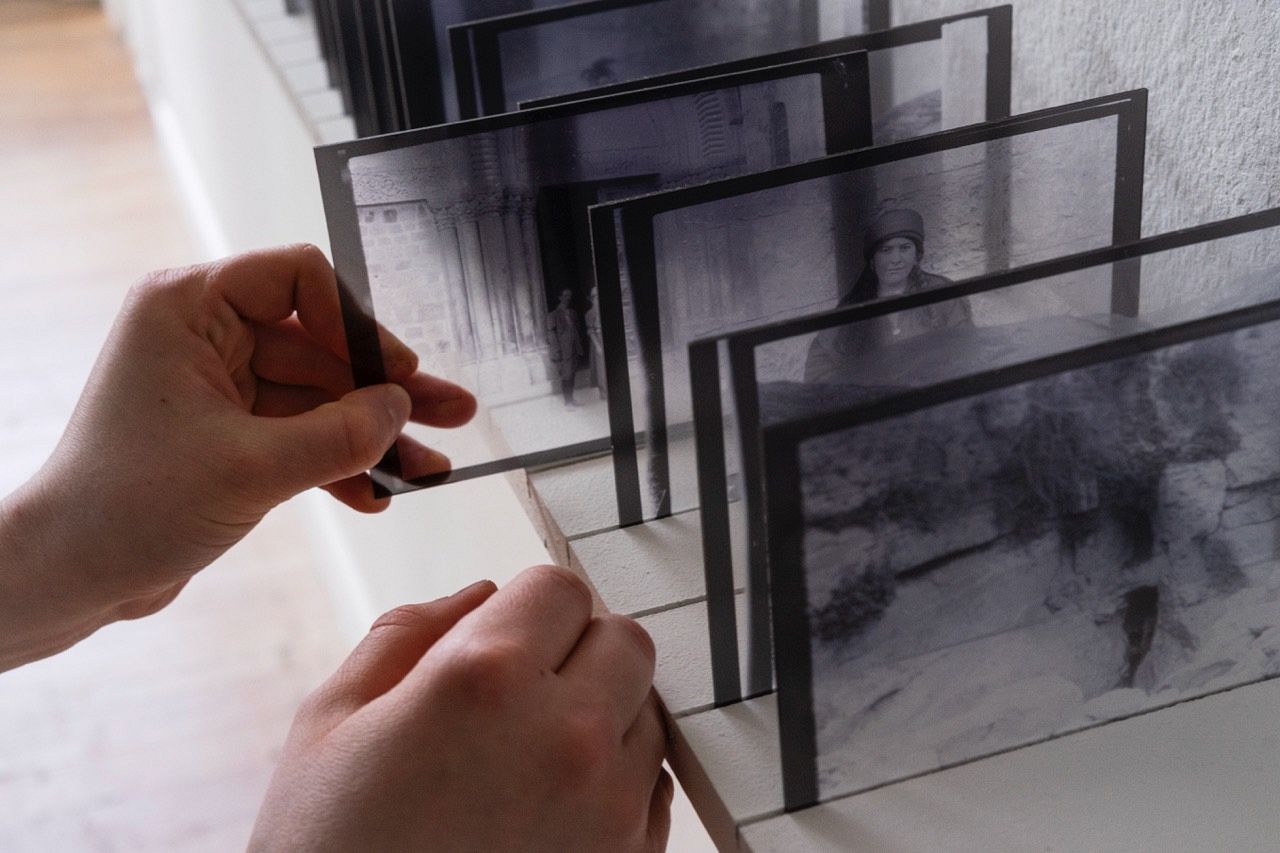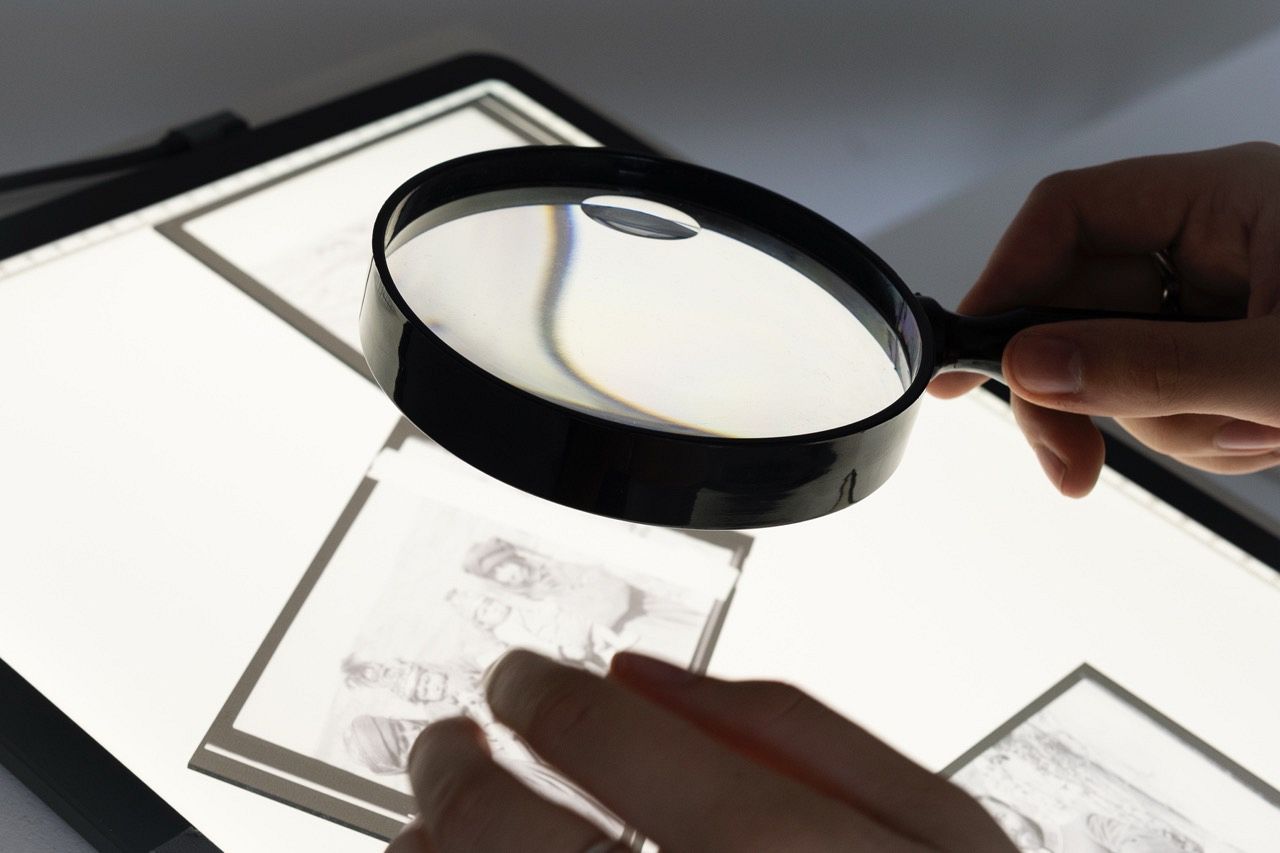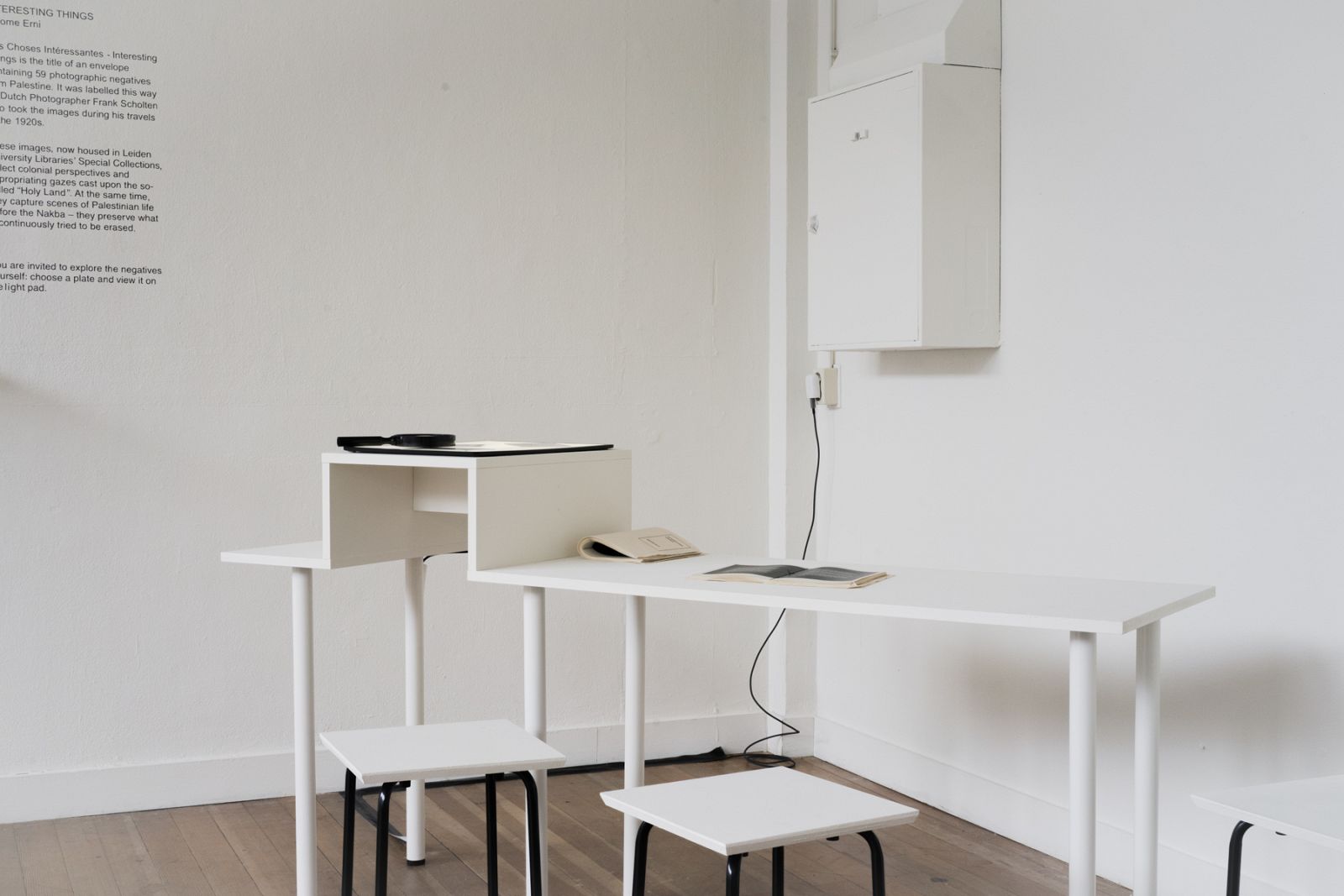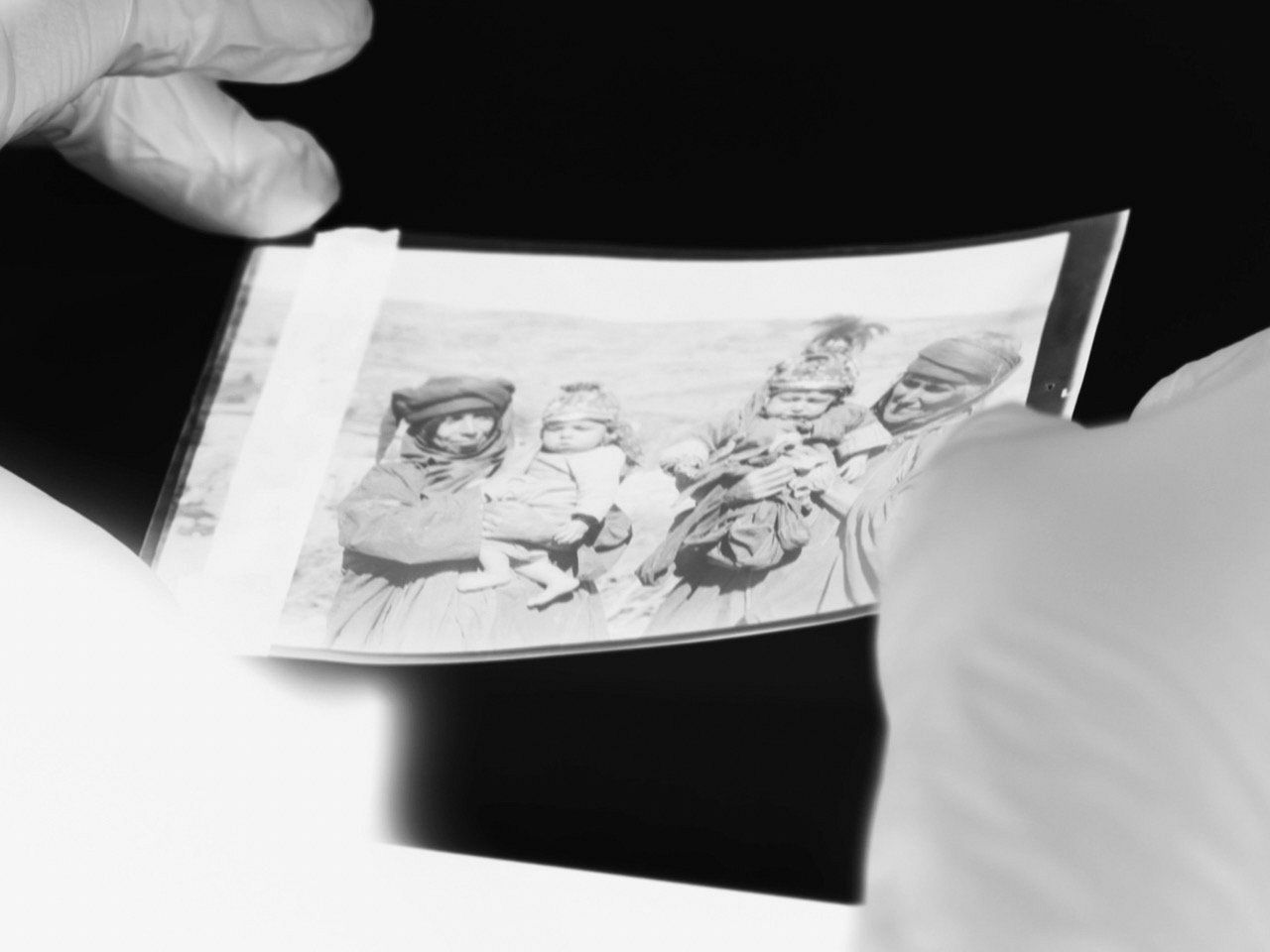
Salome Erni
Keywords: Palestine, Archive, Iconization
Des Choses Intéressantes – Interesting Things – is the title of an envelope containing 59 photographic negatives from Palestine. It was labelled this way by Dutch photographer Frank Scholten, who took the images during his travels in the 1920s. Now housed in the Special Collections of Leiden University Libraries, these images reflect colonial perspectives and the appropriating gaze cast upon the so-called "Holy Land". At the same time, they depict scenes of Palestinian life before the Nakba, preserving what is continually threatened with erasure, expulsion, oppression and denial. Salome Erni’s work – video essay, publication, installation – is to be understood as an insight into ongoing conversations.
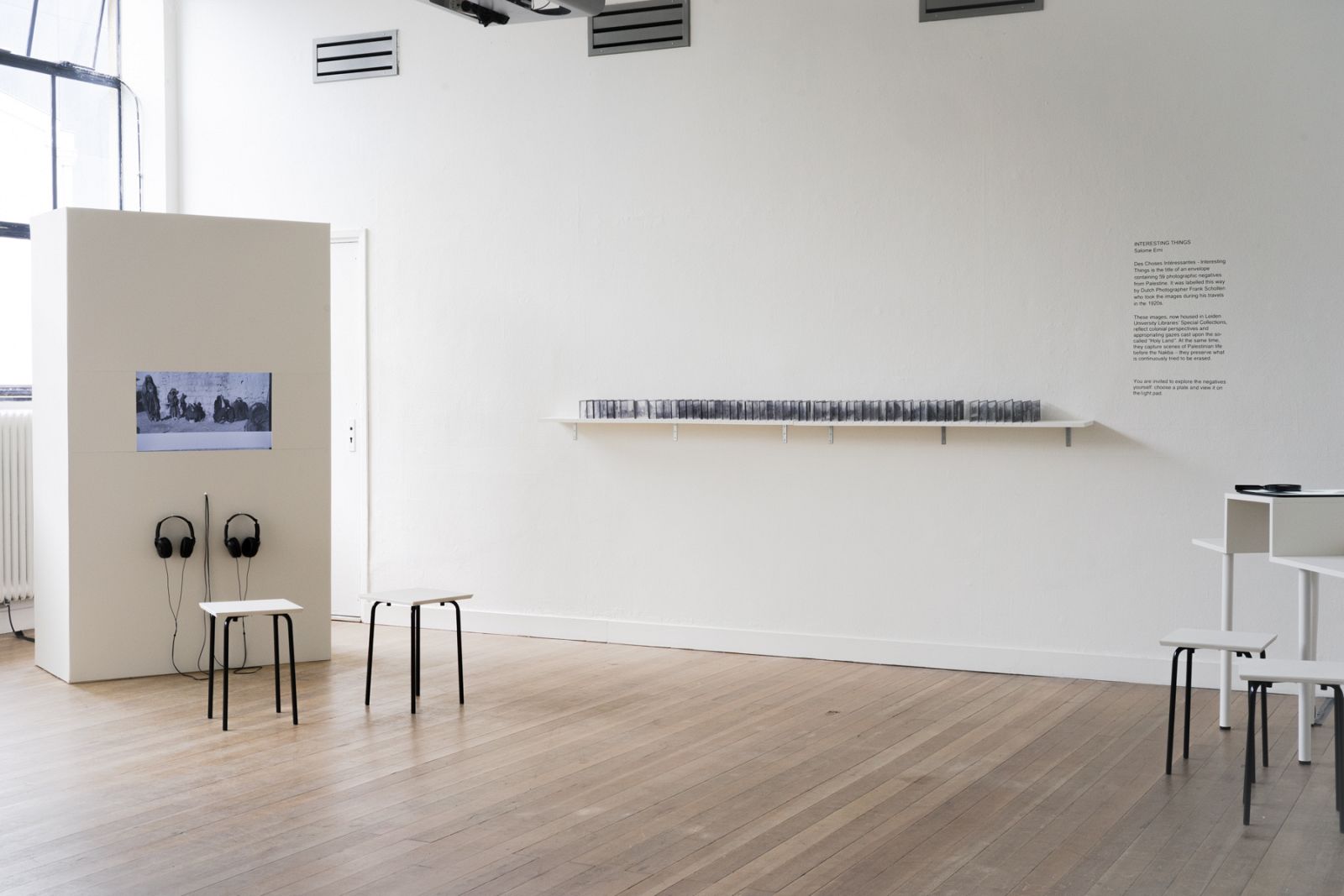
-
-
-
How to look at photographs while witnessing a genocide? The work Interesting Things is an insight into ongoing conversations that deal with images from Palestine (1921-1923), which were labelled Des Choses Intéressantes – Interesting Things – by the photographer.
I, too, feel connected to these images, existing as matter, as photographs in exile, so close by. That is why, in the video essay, I chose to be present in front of the camera myself: handling the negatives and reciting the voice-over. By inverting the video footage – thereby turning the negatives into positives –the essay engages with the political act of looking. Who gazes at whom, and what power dynamics are at play?
-
(private link to the video essay upon request)
-
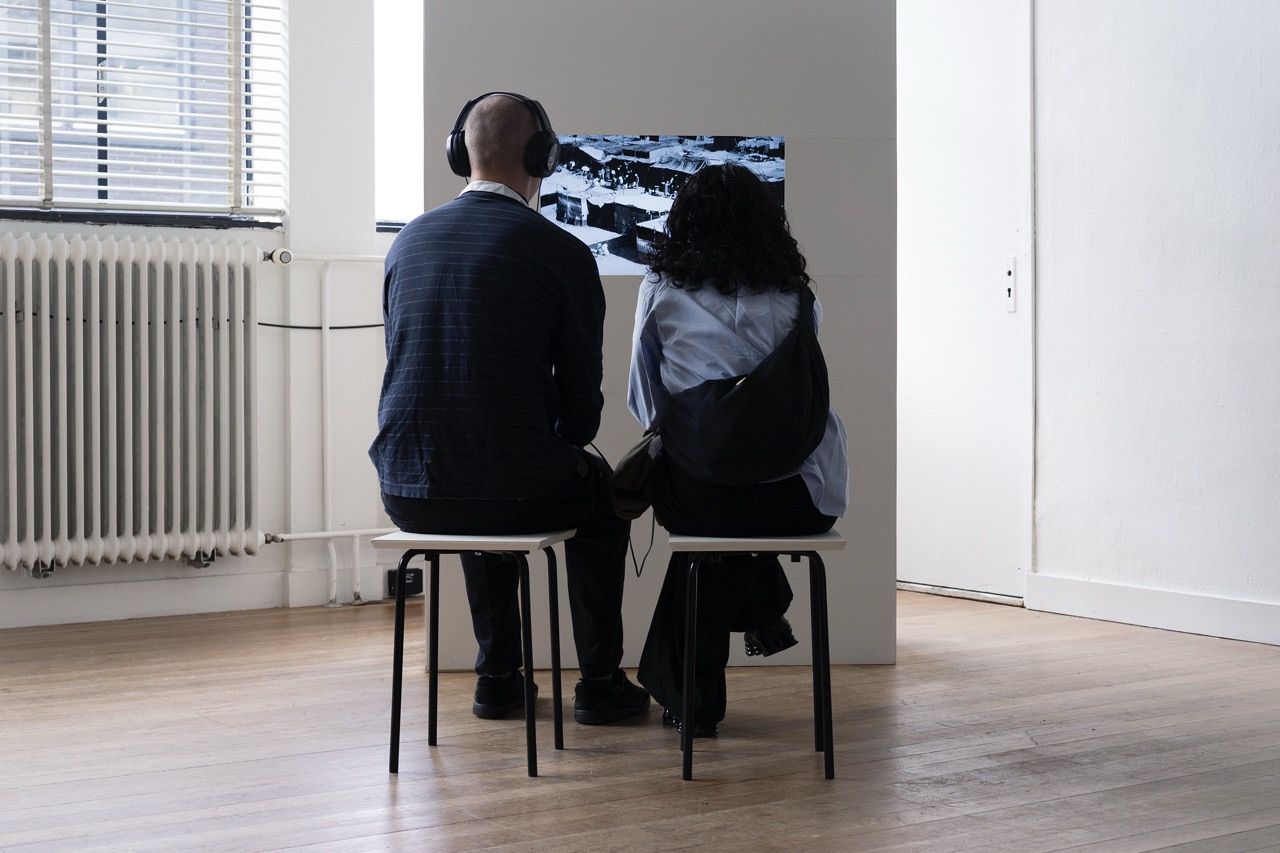
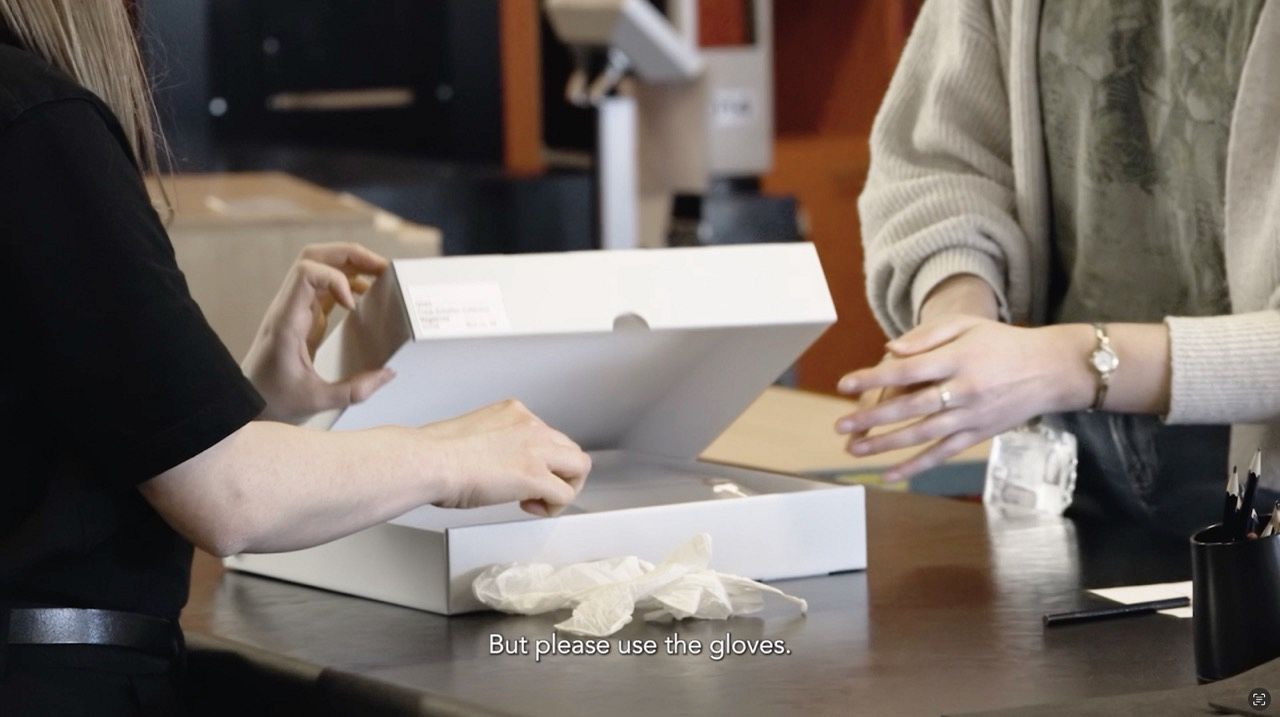
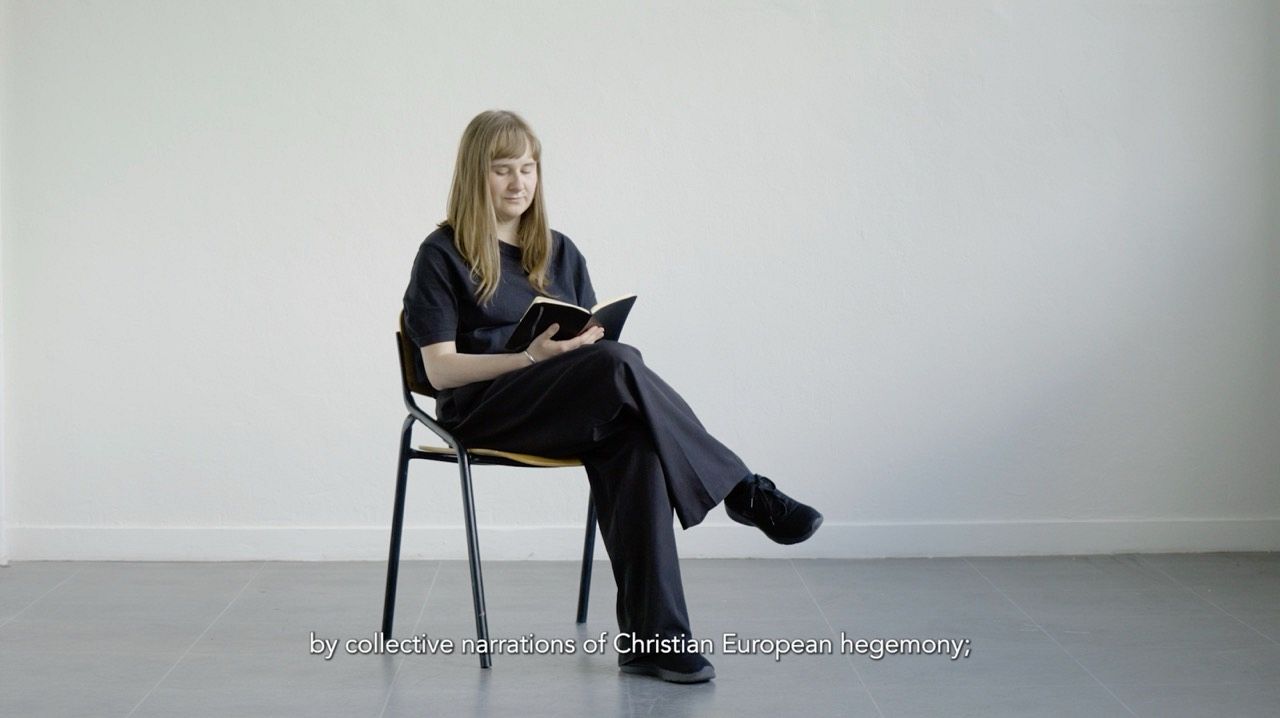
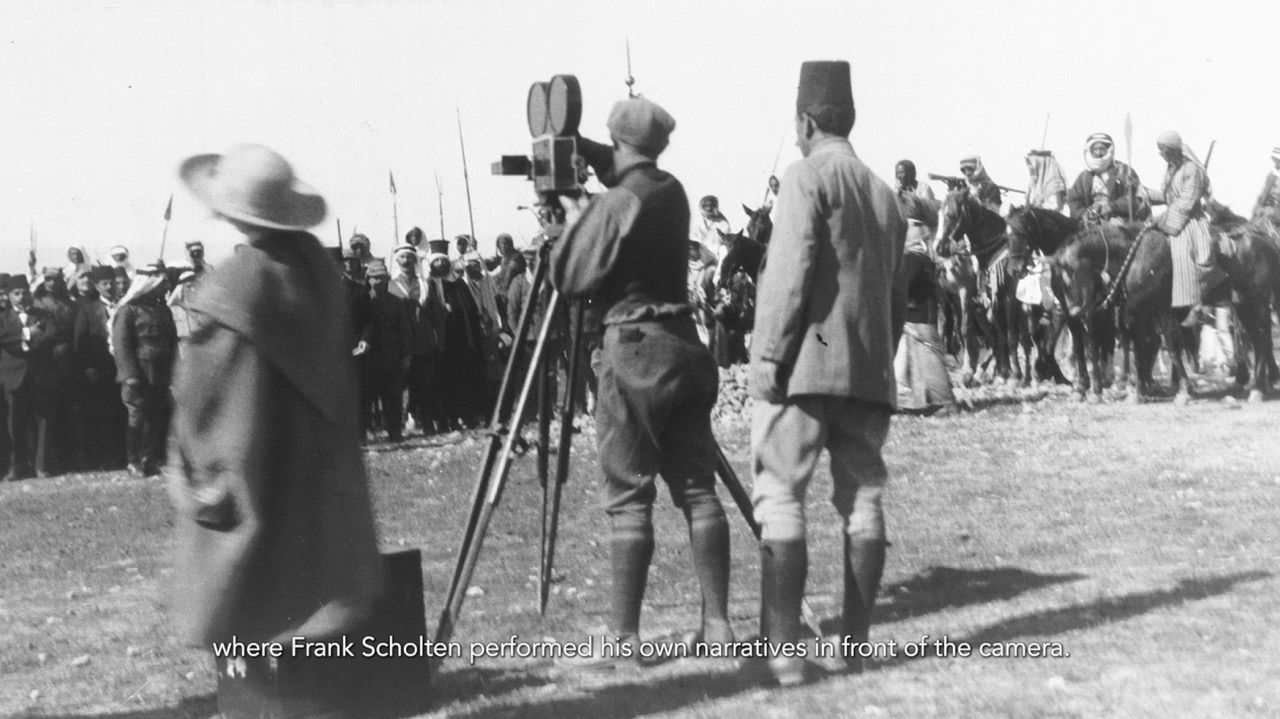
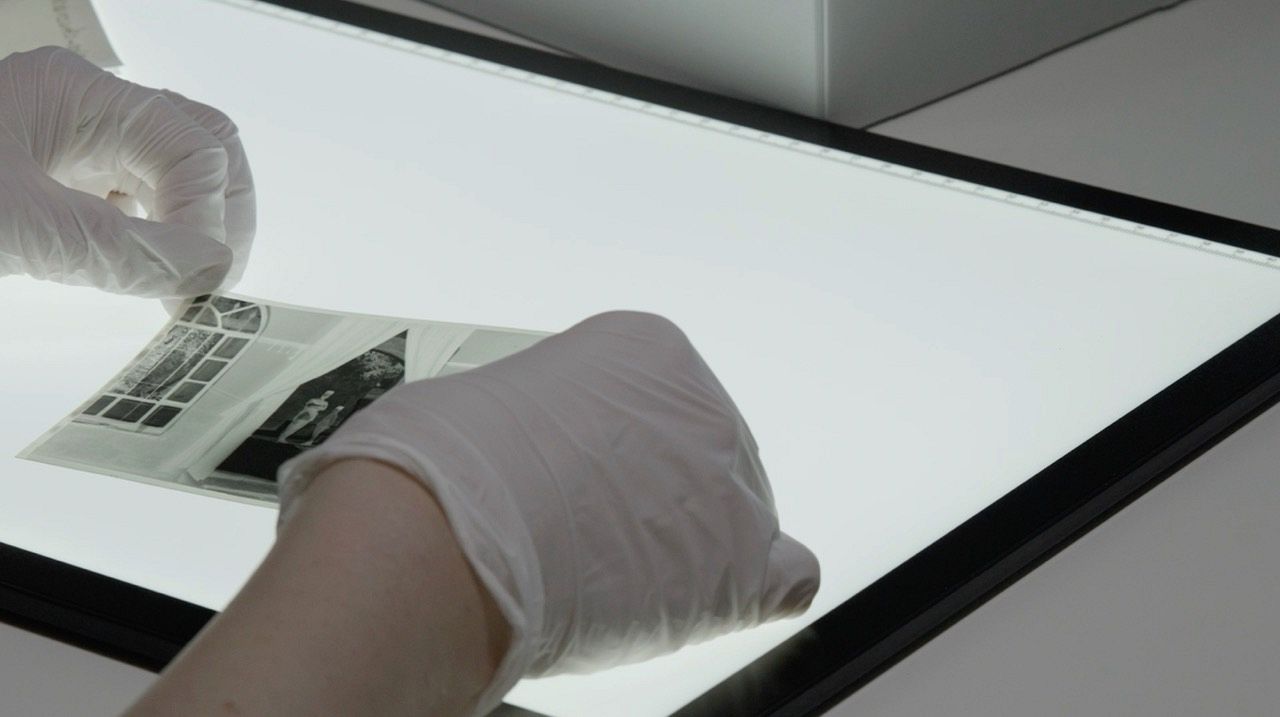
-
Narratives are not inherent to photographs, but constantly in flux. This is especially apparent in the liminal space between photographs and annotations. What can be retrieved, what meanings can be infused, what should be added? My publication Interesting Things juxtaposes Frank Scholten’s photographs with words. It appropriates how Frank Scholten captioned his images to create a biblical taxonomy of people and places in the books he published himself, questioning how later archivists and researchers assigned keywords and titles. By inviting collaborators to contribute with their words, the publication deconstructs notions of knowledge and narrations of Euro-Christian hegemony. The book is an attempt to deal collectively with images that are ambiguous, political, historical and urgent at the same time.
-
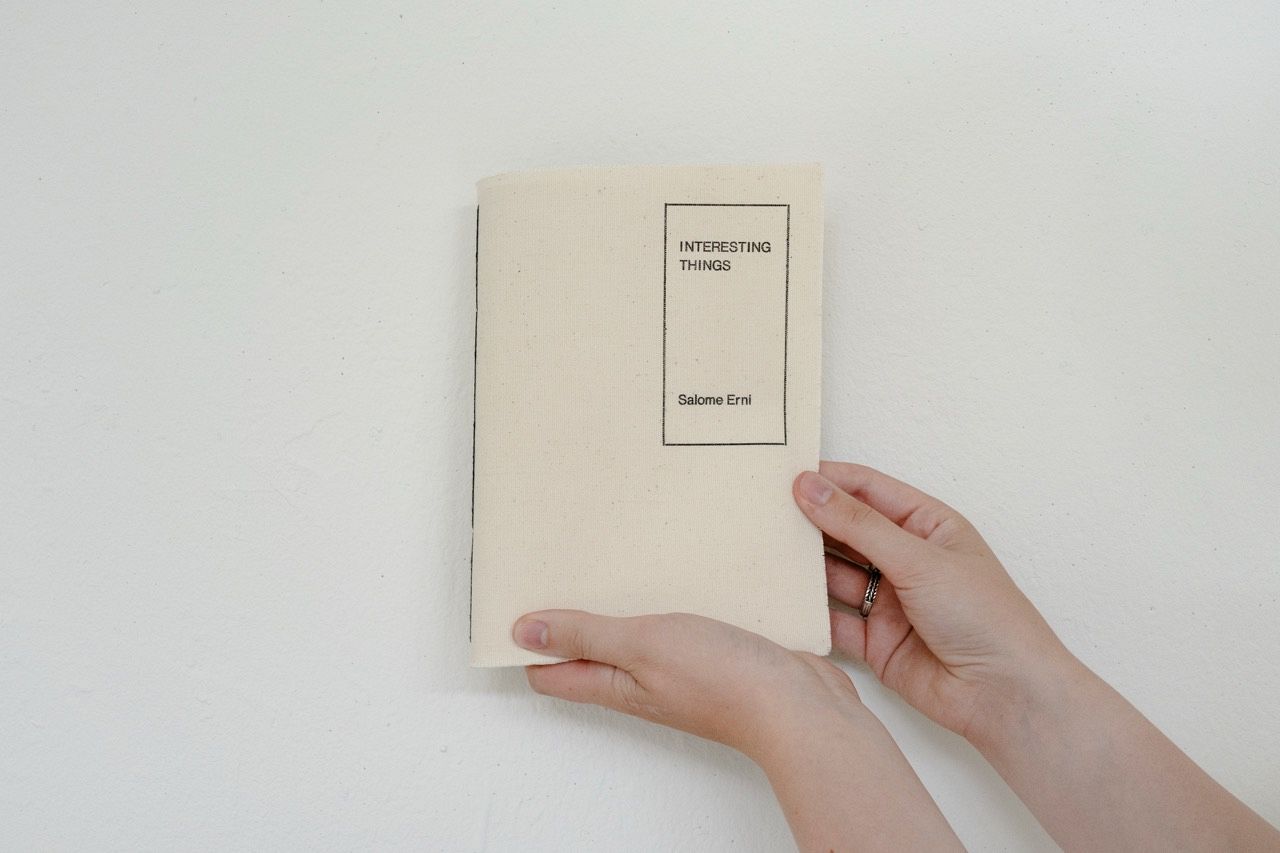
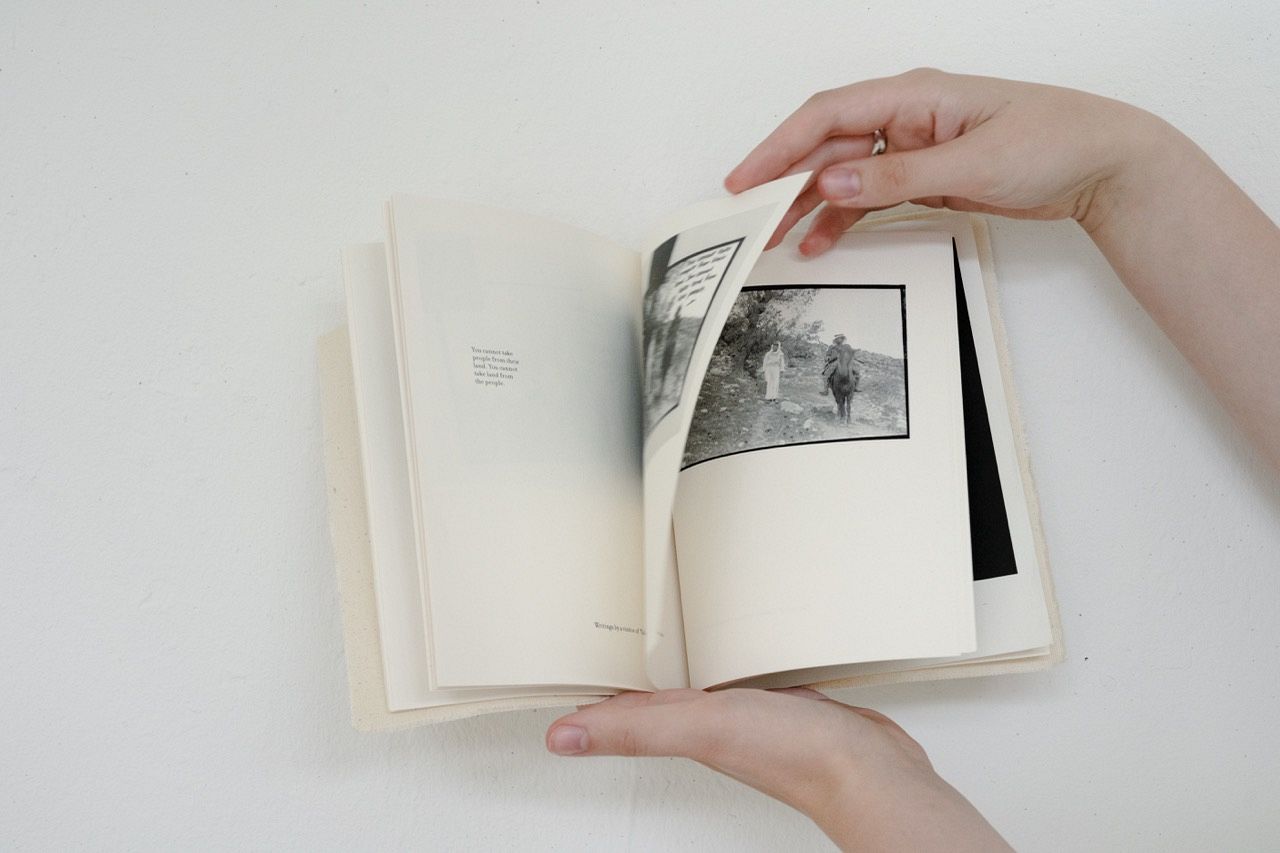
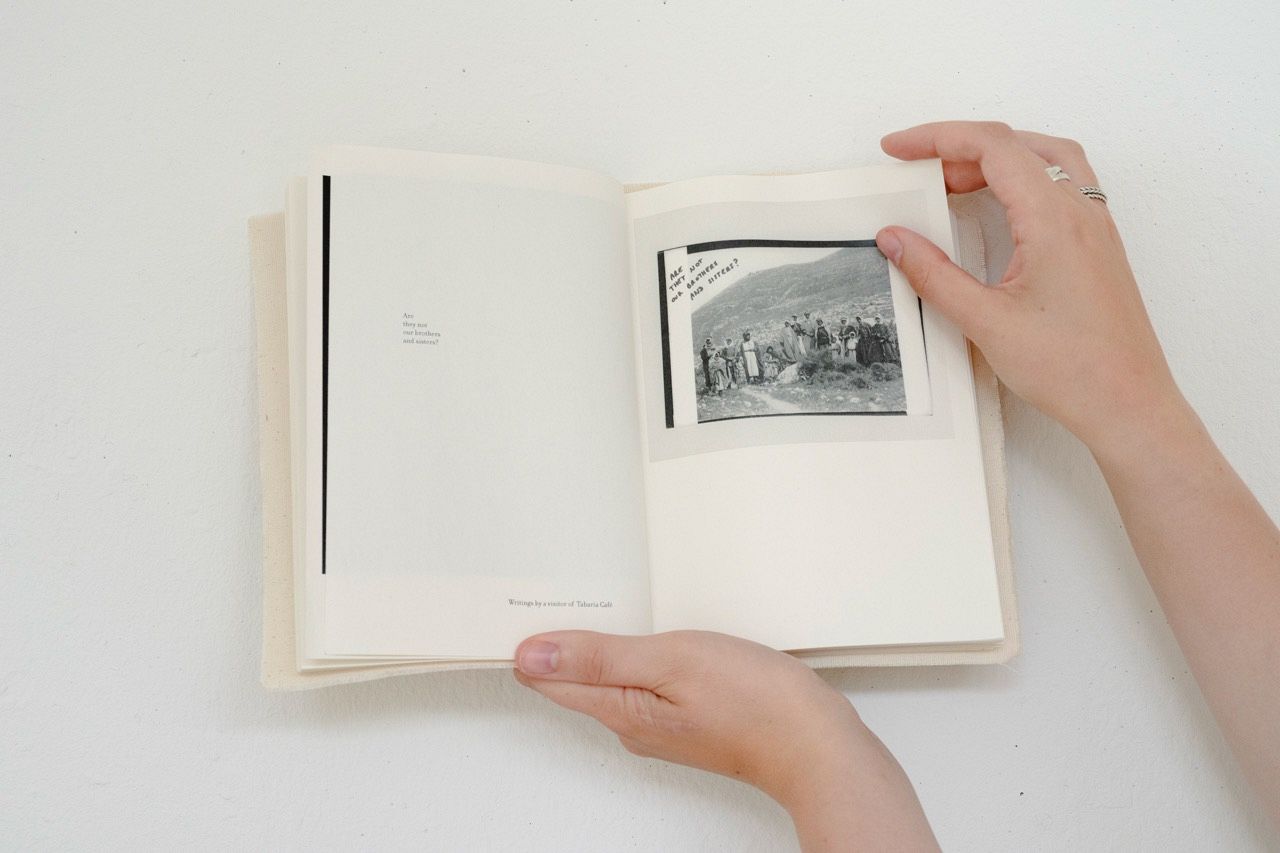
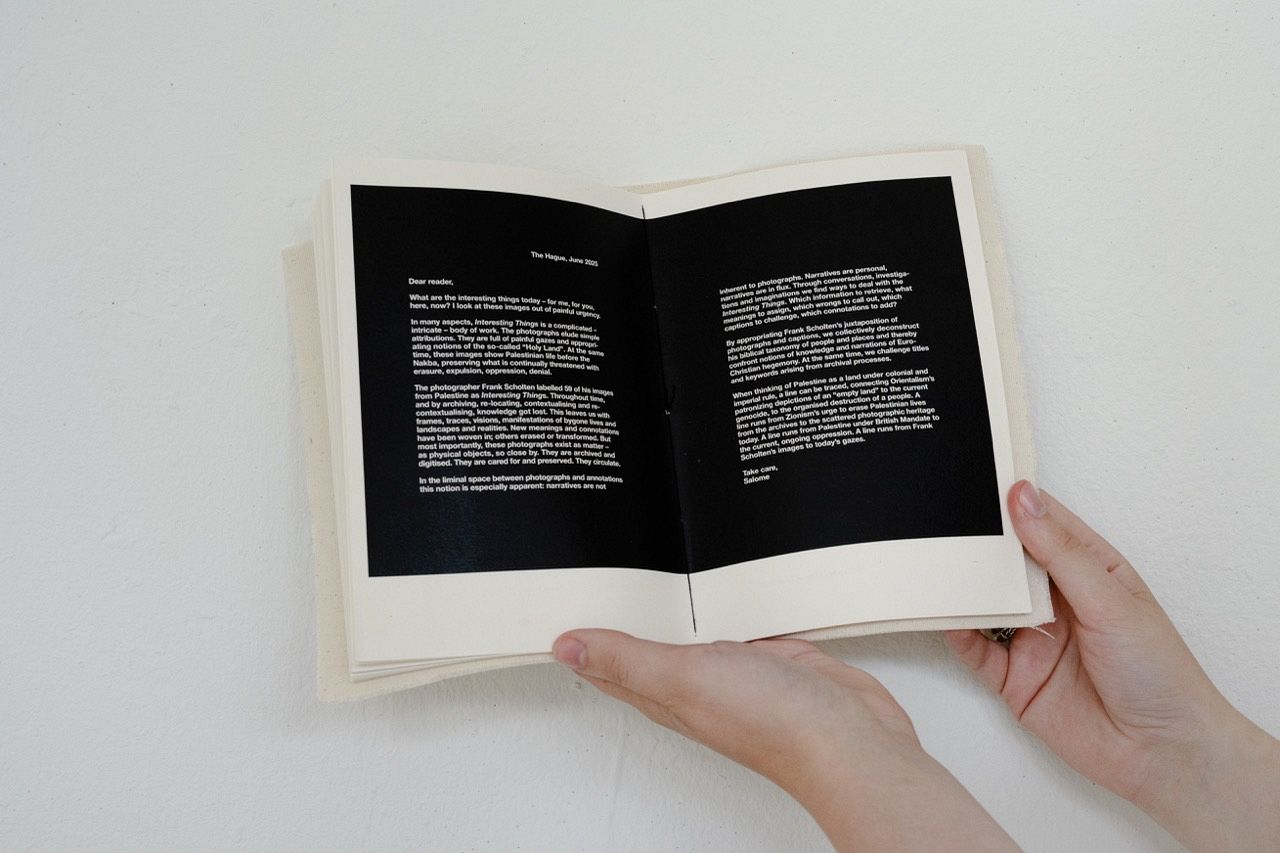
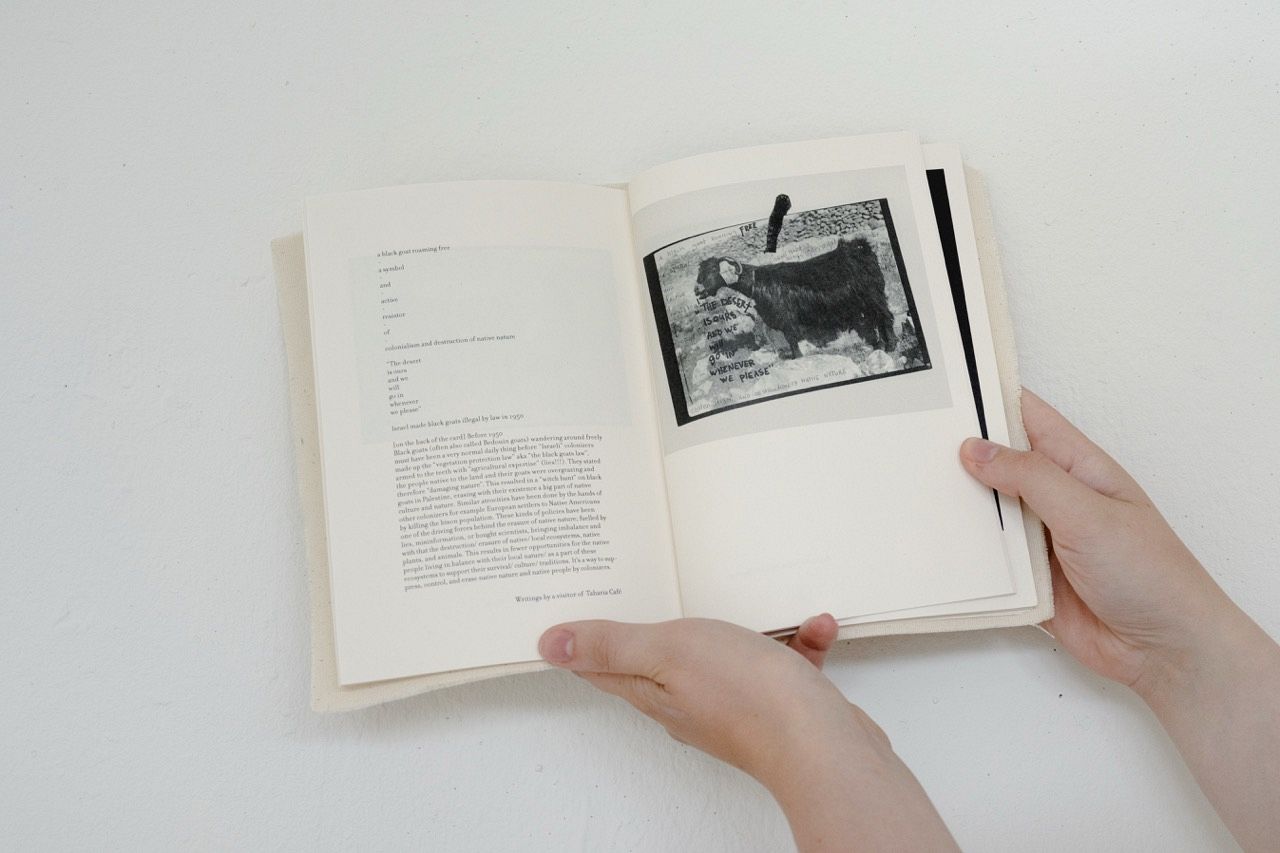
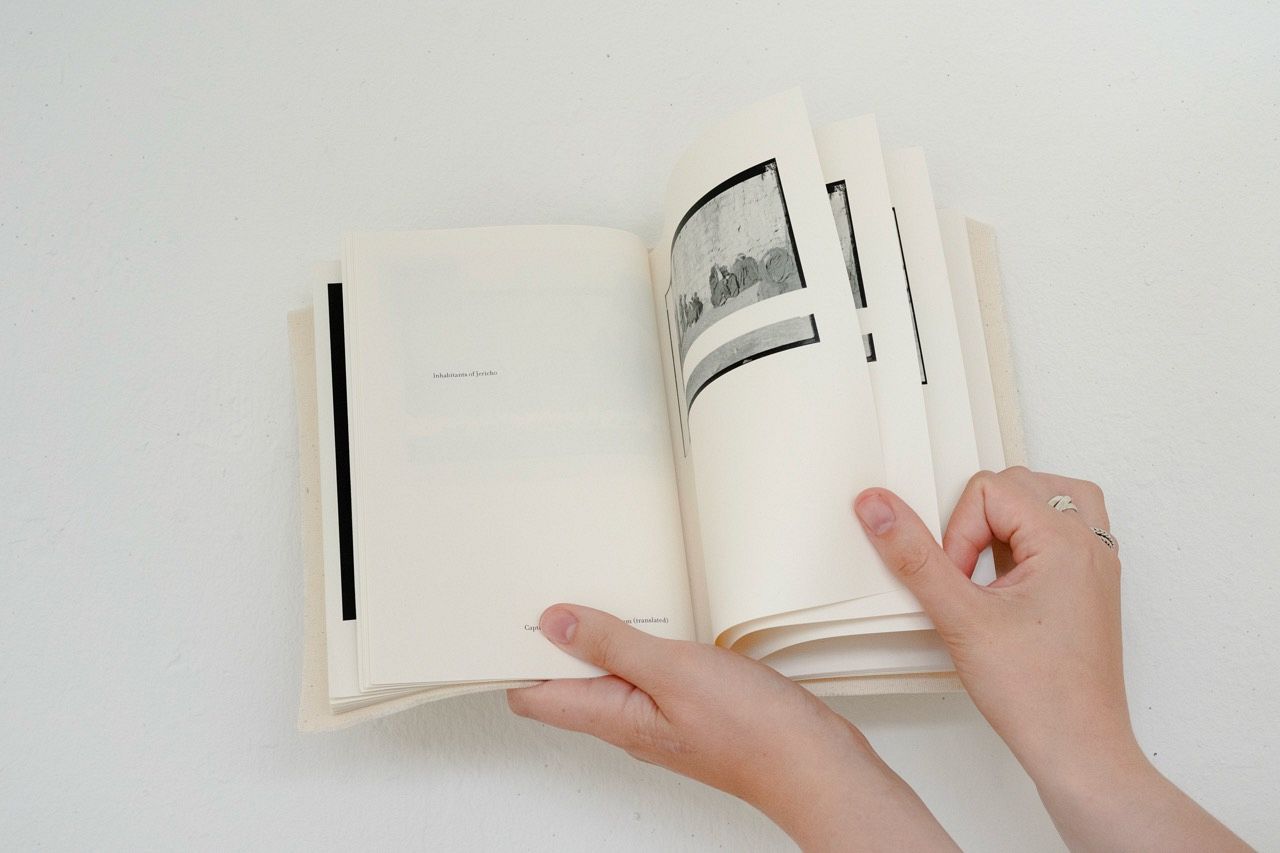
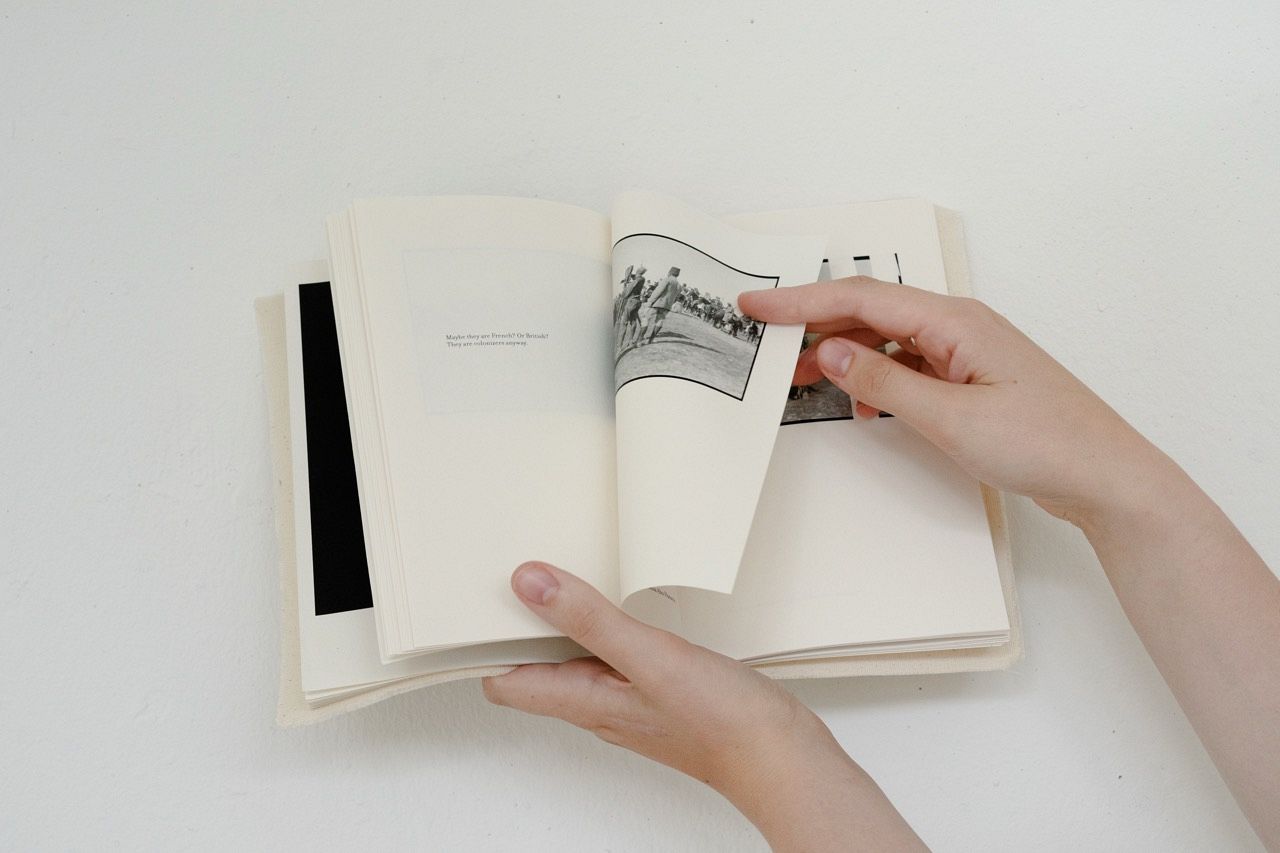
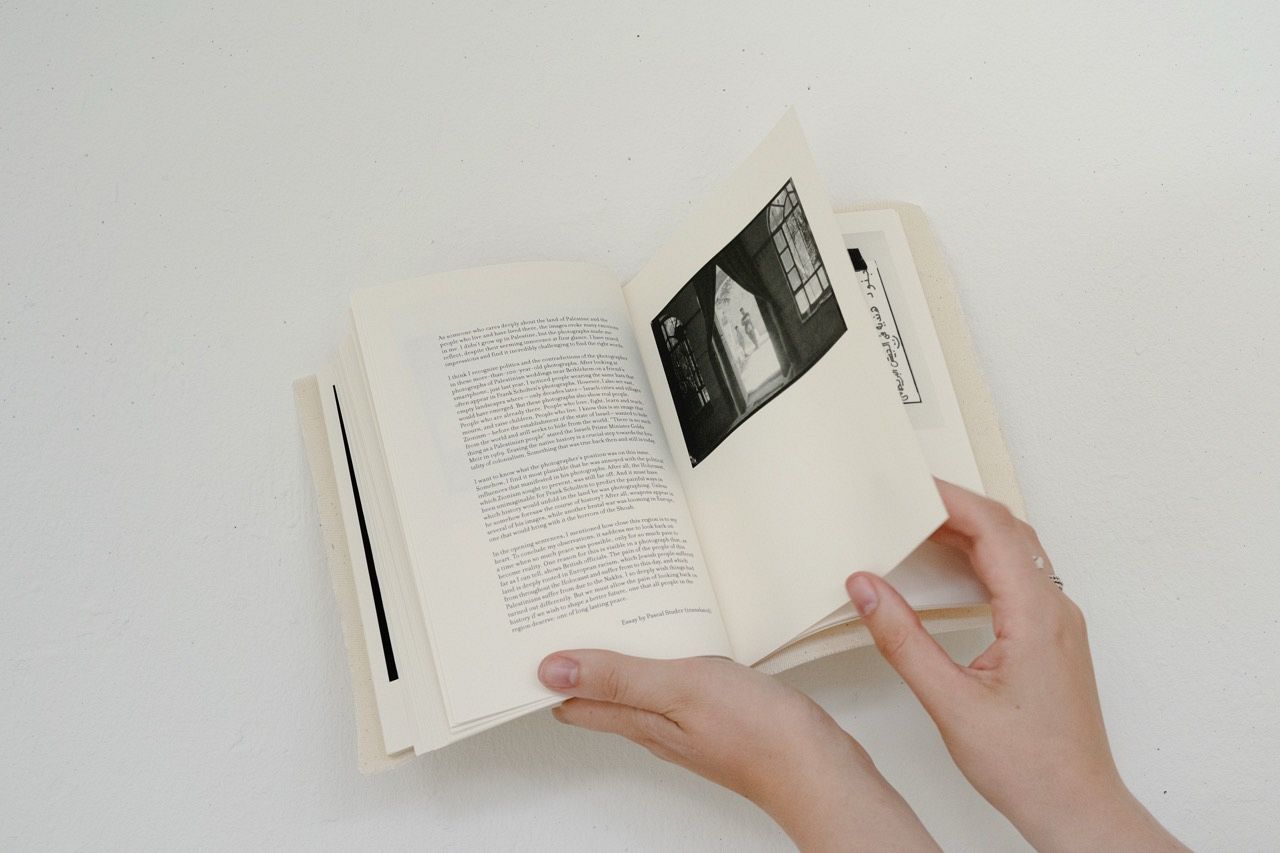
-
When thinking of Palestine as a land under colonial and imperial rule, a line can be traced, connecting Orientalism’s patronizing depictions of an “empty land” to the current genocide, to the organised destruction of a people. A line runs from Zionism’s urge to erase Palestinian lives from the archives to the scattered photographic heritage today. A line runs from Palestine under British Mandate to the current, ongoing oppression. A line runs from Frank Scholten’s images to today’s gazes.
By looking at Frank Scholten’s photographs, there are many “others” to encounter, and the installation Interesting Things provides a space to both explore these relations, and to position oneself in them. We are not mere spectators; everyone is involved in imperialist projects that continue to intersect in Palestine.
-
-
-
